Check out the list of 15 Plants that Resemble Poison Ivy with Three Leaves; this post will help you identify them easily.
Read about the 15 Plants that Resemble Poison Ivy with Three Leaves; these similar-looking plants are not harmful, so next time you see them, don’t get afraid. This guide will inform you about the features that distinguish them from poison ivy.
Read: Plants That Look Like Lily Pads
15 Plants that Resemble Poison Ivy with Three Leaves
1. Blackberry
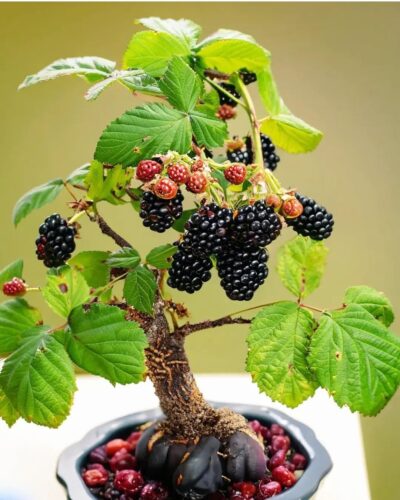
Botanical Name: Rubus
Blackberry displays three leaflets like poison ivy but does not have a shiny surface. This bush also has prickly stems, which conflicts with the vine-like appearance of their toxic counterparts.
2. Raspberry
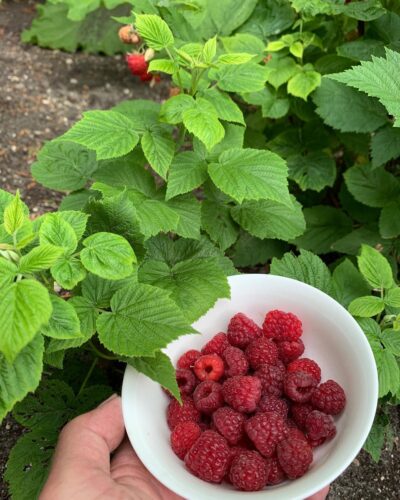
Botanical Name: Rubus idaeus
During the initial growth stage, raspberry plants produce three sets of toothed foliage that look like poison ivy. However, raspberry leaves don’t have a red hue like poison ivy. The edible red berries make raspberry a non-poisonous plant.
3. Hog Peanut
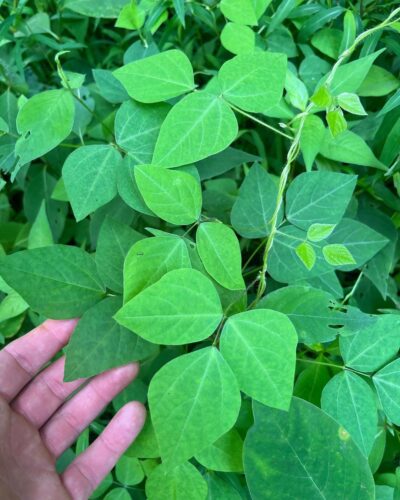
Botanical Name: Amphicarpaea bracteata
This poison ivy look-alike plant showcases clusters of three leaflets, but pea-like blooms and peanut-like seeds make it non-toxic, differentiating it from poison ivy.
Read: Houttuynia Cordata Benefits and Facts
4. Boxelder

Botanical Name: Acer negundo
Boxelder tree produces serrated leaves that make it different from poison ivy. The three leaflets give a resemblance to but lack a glossy shine compared to poison ivy. Another distinctive feature is that Boxelder is a tree and does not have vine-like growth.
5. Virginia Creeper

Botanical Name: Parthenocissus quinquefolia
Virginia creeper has five leaflets instead of three, differentiating it from poison ivy. The red color of the foliage in fall adds beauty, making it a great landscape option.
6. Skunkbush sumac
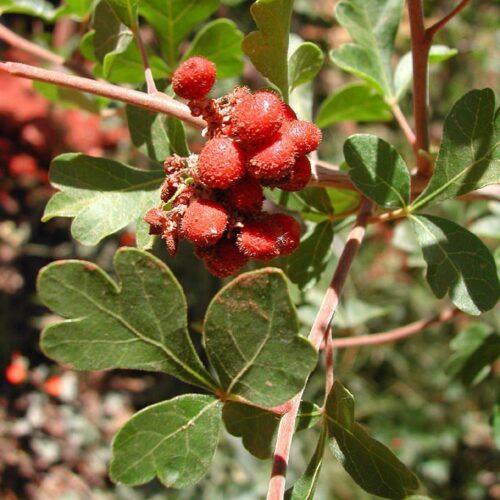
Botanical Name: Rhus trilobata
This plant features compound, waxy, soft, green leaves that grow in groups of three. The foliage turns bright red or orange in the fall. The thing that distinguishes it from poison ivy is the red-to-orange hairy fruits of this plant. Poison ivy produces white or yellow berries.
7. Fragrant sumac
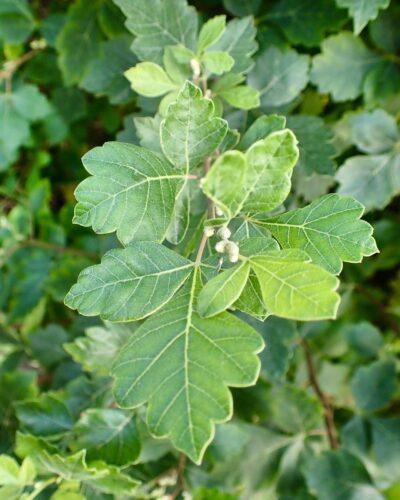
Botanical Name: Rhus Aromatica
This plant features trifoliate-serrated green-blue foliage that turns red and purple in the fall. The clue to differentiate it from poison ivy is the red hairy fruits on female plants.
Read: Weeds with Purple Flowers
8. Boston Ivy
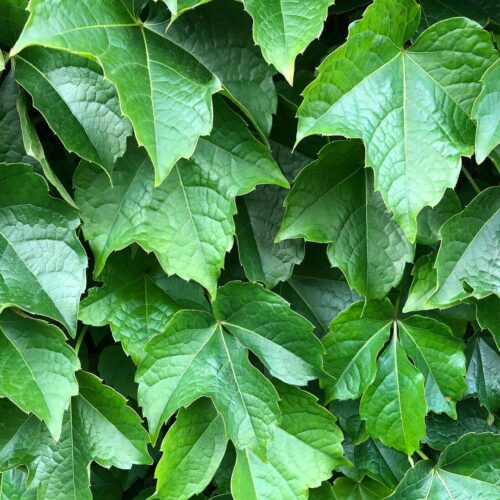
Botanical Name: Parthenocissus tricuspidata
Boston Ivy features three-lobed leaves like poison ivy. The foliage turns red in fall, making it easy to differentiate from poison ivy.
9. Dewberry
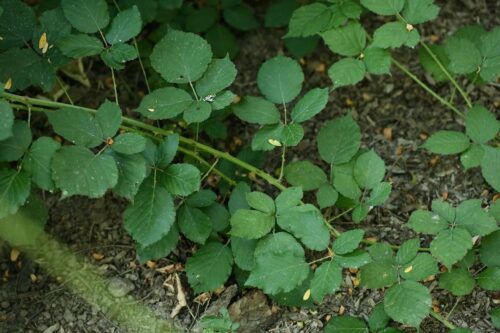
Botanical Name: Rubus caesius
Dewberry bushes also offer leaves in a set of three, like poison ivy. The difference between the two is dewberry foliage is not glossy; it also produces edible small black berries.
10. Kudzu
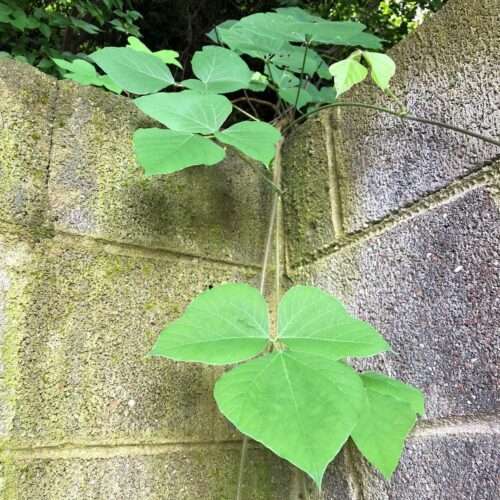
Botanical Name: Pueraria montana
Same as poison ivy, kudzu spreads on the ground with large foliage in a group of three, but it will not irritate your skin like poison ivy. In some places, it is considered problematic due to invasiveness.
Read: Balinese Plants and Flowers
11. Strawberry
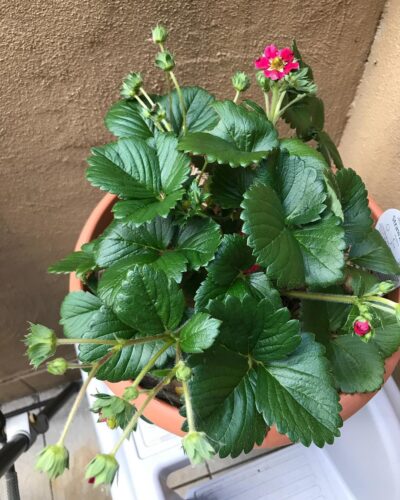
Botanical Name: Fragaria Vesca
The three leaflets of the strawberry plant resemble poison ivy, though the foliage is not glossy or red in appearance when young. Strawberries are low-growing as well.
12. Jewelweed
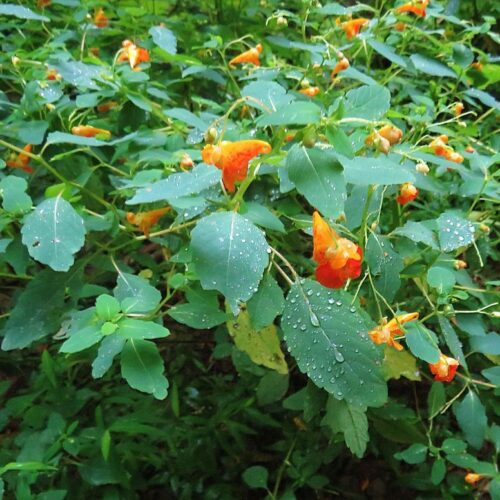
Botanical Name: Impatiens capensis
Jewelweed has clusters of three foliage-like poison ivy. The distinguishing features that set them apart are orange blooms and succulent stems. According to folk medicine, jewelweed can cure skin irritation caused by poison ivy.
13. Mock Strawberry
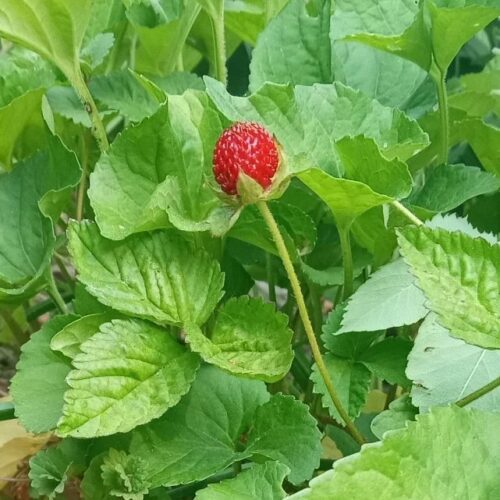
Botanical Name: Duchesnea indica
This low-growing invasive plant shows off a group of three leaves that connect to the stem at a single point in the center. However, the foliage is more yellow compared to poison ivy.
Read: Gaillardia Companion Plants
14. Jack in the Pulpit
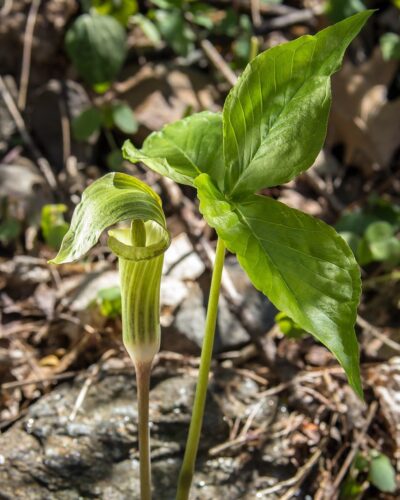
Botanical Name: Arisaema triphyllum
Jack in the pulpit exhibits three leaflets over a hood-like form. You can identify this plant by its flowers, which also make it different from poison ivy.
15. Bushkiller Vine
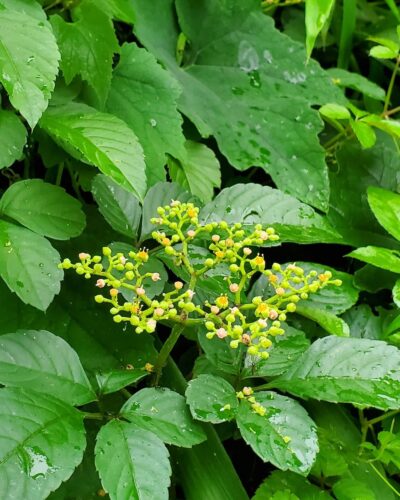
Botanical Name: Cayratia japonica
This climbing vine displays a group of three leaflets resembling poison ivy. It is not toxic and has a small size that makes it different from its toxic counterpart.



